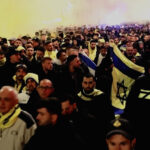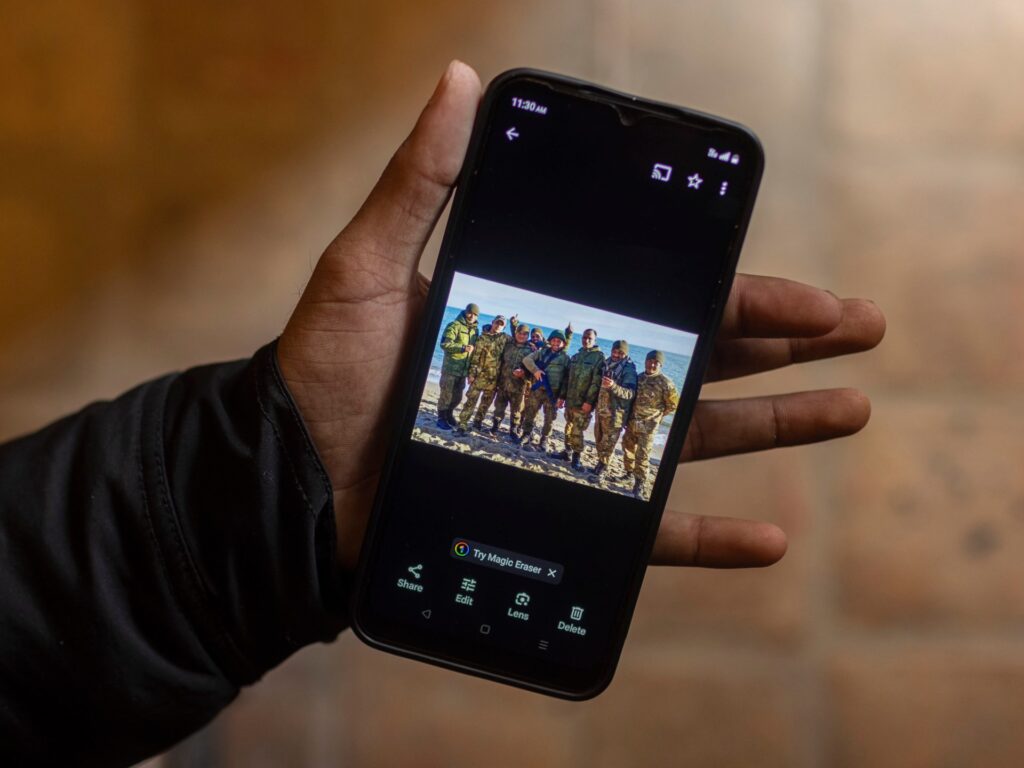
Now and then, we read about Russia’s attempts to recruit poor people as mercenaries in its imperialist war against Ukraine. These efforts have stretched across continents: from Latin America to Africa and Asia. If you happen to know someone considering such an option, please oh please tell them not to do it.
We, as Ukrainians, fight for our homes and families. It’s a rather obvious choice for us, after having been attacked by an imperial force that ruled over us for many years in the past. We, the Ukrainian people, see our struggle as an anti-imperialist one.
Personally, I feel more solidarity with the peoples of the Global South than with anyone else. So I’m pleading with everyone there in the hope they understand that Russia is just another imperial force. Even though it’s not “their” empire, not the one victimising them, it still is an empire.
Joining an imperial war means participating in the oppression of another people; it is not worth risking one’s life, even for the promise of money.
For me, it’s sad to see the poor being recruited or compelled to fight for an empire. I have seen some of them while serving in the Ukrainian army. The story of one of them has stuck with me.
I met Bibek on the front line in the east of Ukraine. He was a Nepali man fighting in the Russian army who had been captured by Ukrainian forces. Our unit was ordered to guard him before he was transferred to prison.
Bibek stayed with us a bit longer than expected, as our commanders had to figure out where to transfer him to.
There is a clear procedure for Russian prisoners of war (POWs). They are sent to camps in the rear, where they wait for a POW exchange between Ukraine and the Russian occupier.
There is a different procedure for Ukrainian citizens from the occupied territories who had been mobilised into the Russian army. When they are captured, they face trial in a court, where they have legal defence. The court has to determine if they were forced to collaborate, or willingly committed treason.
But the procedure for POWs from third countries was not that clear, at least in the beginning. Bibek was our first such case, so our officers had to make some calls to figure out what authority to transfer him to.
Our captive was a tall and handsome young man with beautiful dark eyes. If I remember right, I was the one to untie him. I felt pity for Bibek, and he felt my pity for him. He spoke a bit of English, so we were able to communicate. “Will I go home now?” was the first thing he asked me.
I almost wanted to cry. He was so naive. The pleading eyes, the timid voice. It seemed like Bibek didn’t even realise that he was considered a mercenary by Ukrainian and international law. Now that he was captured and not a combatant anymore, he could simply go home, Bibek seemed to believe. Or perhaps, that’s what he wanted to believe.
Bibek was very different from the stereotypical image of “the mercenary soldier”. He was a shy and gentle kid, that’s what he was. During his primary interrogation, he told us honestly his name, rank, unit, circumstances, etc. He said he came to Ukraine together with the Russian army because he needed the money to help his mom. He was the only child, he said. And his mom was poor and sick, he said.
I translated his answers for the interrogating officer. I also spoke to him privately a lot during his stay with us. Apart from some food and water, I also gave him my own pills of paracetamol and antibiotics, hoping they would help with the wound on his left thigh. I bought him cigarettes, although that wasn’t really allowed.
Bibek told me that he came to Russia on a student visa with the intention to do undocumented work in order to help his mom. He worked as a packer at a small factory and was paid in cash. One day, he was offered by another Nepali, a recruiter, to work “as a cook” for “the ministry of defence” in Moscow for a salary a dozen times higher than what he was making at the factory. He took the job.
Instead of going to Moscow, however, Bibek was promptly transferred to Donetsk in the occupied part of Ukraine, where he was trained as a storm trooper. After just a week, he was sent to storm Ukrainian positions.
Bibek said he was caught in his very first battle because he got lost and also lost his team in the smoke, the roaring and the panic. There were other Nepalis in his unit, but he didn’t know what had happened to them.
What puzzled me most was that I could not bring myself to feel any animosity towards Bibek, not at all. Even though, technically, he had come to my homeland in order to kill me, for money, I could not bring myself to see a “mercenary” in him. I saw a misguided young man the age my son could be. He and I could be friends under different circumstances, I thought.
There was another Ukrainian soldier, a devout Catholic, who was also “too compassionate to the enemy”, as some of the others in our unit thought. The two of us, me and the Catholic guy, were mocked for this by our fellow soldiers. So, I named the Catholic and myself, ironically and also defensively, “the Mother Teresa squad”.
I don’t quite know what happened to Bibek after the authorities came to our unit and took him away. However, I later saw a video of him online. It was footage of court interrogations featuring him and some other mercenaries.
Only after meeting Bibek, I learned that Russia lures and mistreats thousands more like him from different countries. Mostly, these are people from Asia and Africa and mostly, they are from among the very poor. Sometimes, they are undocumented workers in Russia threatened with deportation. They are promised “jobs” in logistics or in hospitals or cooking, as was the case with Bibek, before they are sent to the front line to be used as cannon fodder.
Many are killed. Some are “lucky” and are captured alive, but face the prospect of spending years in prison.
All this is painful to observe.
Every time I hear about another batch of Russian mercenaries from the Global South being deployed, I think of Bibek’s bright eyes. I hear his shy voice. And I feel sorry for his ruined youth.
The views expressed in this article are the author’s own and do not necessarily reflect Al Jazeera’s editorial stance.
The text is part of a joint initiative by the Ukrainian Institute, UkraineWorld and PEN Ukraine.
Artem Chapeye was also a signatory of the Ukrainian letter of solidarity with the Palestinian people published by Al Jazeera.











More Stories
Anxiety and dismay inside the Justice Department after Trump taps Gaetz as attorney general
Trump names Karoline Leavitt as youngest ever White House press secretary
What happens next in The Onion’s effort to buy Alex Jones’ Infowars